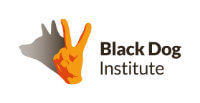This month marks Neurodiversity Celebration Week (18-24 March), where we celebrate the natural diversity of brains, encompassing all neurological variants from neurotypical to neurodivergent. In our roles as health professionals, we often work with neurodivergent people, and many health professionals also identify as neurodivergent. This comes as no surprise given that an estimated 30-40% of the Australian population are neurodivergent1. Neurodivergent people have brains that differ from dominant societal expectations of what’s typical. The ‘neurodivergent umbrella’ encompasses a variety of neurotypes, such as autism, ADHD, giftedness, dyslexia, and dyspraxia, among others.

Neurodivergent people bring many strengths to the table. They may also face unique challenges, arising from a mismatch between their individual needs and the various demands of dominant societal expectations and structures. Some of these challenges can be well met with individually-tailored solutions. For example, many neurodivergent people effectively integrate technology into everyday life in a range of ways:
- Autistic people may use noise-cancelling headphones to block out sensory stimuli;
- ADHDers might use a digital calendar, electronic reminders or a to-do list to help with executive functioning or watch engaging content to boost their dopamine while completing mundane tasks;
- Dyspraxic people might benefit from using a laptop at school or work rather than writing physical notes;
- Dyslexic people might use voice-to-text software and AI tools to improve their learning and working experiences or day-to-day communication.
In addition to using technology to navigate everyday life, neurodivergent people can also use digital tools to support their mental health. Digital mental health services can be accessible, non-invasive support options that can cater to the unique needs and preferences of neurodivergent people.
services that are outlined below have been designed with neurodivergent people in mind, but that does not mean they will work for every neurodivergent person. When considering using technology in your practice, it is important to remember that all neurodivergent people are different. While a digital tool might be revolutionary for one person, it could be less effective or even unhelpful for another. A key aspect of a neurodiversity-affirming approach is acknowledging that every person is an expert on themselves. With this understanding, let’s explore some digital services that have been specifically designed to support the neurodivergent community.
Peer support
Peer support plays an important role in the neurodiversity-affirming landscape, offering a unique space where people can share experiences, strategies, and connect to peers in the community.

ReachOut
Celebrating Neurodiversity Forum
ReachOut is an Australian mental health support service for young people, parents and caregivers. It provides up-to-date information and advice for young people on a range of topics, including relationships, sexuality, identity, and gender. They also offer peer support through online chat groups and referral tools to help young people stay well.

SANE
Lived Experience Forum
SANE Forums provide moderated peer support for people living with a mental illness or related mental health issues and for their family, friends and other support people. Last year for Neurodiversity Celebration Week they shared a variety of posts to celebrate and discuss a range of neurodivergent identities.
Digital resources for autism
With autism being one of the more researched kinds of neurodivergence, there are numerous digital mental health resources available for both young people and adults.
Read our factsheet to explore digital mental health resources for autistic people
Read our blog which delves into how to use digital mental health resources with autistic clients
Digital resources for ADHD
There are exciting developments in evidence-based tools for ADHD in the United States. One example is a video game, which has been shown to help ADHD children’s attention and has received FDA approval for prescription use. While there are currently no similar resources that have been approved for use in Australia, this is a growing area so watch this space.
Digital resources for co-occurring mental health challenges
Neurodivergent people can face increased societal demands and may use the strategy of masking in response to these. Masking can take a significant toll on a person’s energy reserves, and mental health, and can lead to burnout in some cases too. It’s estimated that anxiety and depression occur in 20-40% of neurodivergent people2, 3, up to four times that of the rates of these in neurotypical people4. Digital mental health resources and programs can be a great option for co-existing mental health concerns such as anxiety, depression, OCD and insomnia.
Digital mental health tools might be appealing, or even preferable, for neurodivergent clients due to the self-led and engaging nature of these programs. It’s important to note that most of these services haven’t been designed specifically with neurodivergent people in mind so it’s crucial to familiarise yourself with the service and, together with your neurodivergent client, assess whether it would be an appropriate option.

MindSpot
MindSpot is an Australian, free, national service for adults who experience stress, worry, anxiety, low mood, chronic pain, or depression. It provides mental health screening assessment and courses to manage various mental health issues. Participants can choose to receive weekly therapist support during the course, or they can choose to access a MindSpot therapist to assist with guidance through the program as needed.

This Way Up
This Way Up is an Australian service that provides online treatment for mental health concerns including anxiety, depression, OCD, and more. Please note, users require a referral from their GP or allied-health professional to access the free version of the program.

Mental Health Online
Mental Health Online is an internet-based clinic for adults who experience mental health concerns. It offers a range of expert programs, information, and resources to help people manage their own mental wellbeing. They offer courses for anxiety, depression, panic attacks, OCD and more.
If you would like more information on digital tools that may be useful to neurodivergent people, Black Dog Institute’s e-Mental Health in Practice (eMHPrac) team have recently written a blog and delivered a webinar on the topic.
Being Well Blog
AuDHD Through the Looking Glass: Bridging the Gap in Neuroaffirming Care with a Lived-Experience Approach
Georgia Scott, Neurodivergent Child & Family Practitioner, shares her experience navigating challenges as an autistic person and ADHDer (AuDHD), emphasising the importance of neuroaffirming care. Drawing from her journey towards self-discovery and her work with neurodivergent children and their families, she advocates for systemic changes to better support neurodivergent individuals.
eMHPrac Webinar
Living well with ADHD Webinar – Recorded
In this webinar, the Black Dog Institute team and guest panellists discuss the prevalence of adult ADHD and what prompts adults to seek a diagnosis. They explore neuroaffirming approaches and strategies for living well with ADHD. They also look at strategies related to organisation, memory, stimulation, and sleep.
1 https://www.jobaccess.gov.au/news-media/neurodivergence-workplace-reducing-unconscious-bias
2 Accardo, A. L., Pontes, N. M., & Pontes, M. C. (2022). Heightened anxiety and depression among autistic adolescents with adhd: Findings from the national survey of children’s health 2016–2019. Journal of Autism and Developmental Disorders, 1-14.
3 Hudson, C. C., Hall, L., & Harkness, K. L. (2019). Prevalence of depressive disorders in individuals with autism spectrum disorder: A meta-analysis. Journal of Abnormal Child Psychology, 47, 165-175.
4 Hudson, C. C., Hall, L., & Harkness, K. L. (2019). Prevalence of depressive disorders in individuals with autism spectrum disorder: A meta-analysis. Journal of Abnormal Child Psychology, 47, 165-175.





